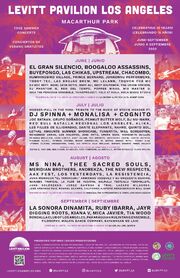ATLANTA, GA. (Top40 Charts) Walker & Assoc. announced a lawsuit has been filed in the United States District Court, Southern District of New York (Case #7:22-cv-3175) against one of the writers of H.E.R.'s song "
Could've Been" featuring Bryson Tiller. Omerror Dawson, who wrote Take 6's "Come Unto Me," as well as Take 6 members Alvin Chea, Cedric Dent, Mark Kibble,
Claude McKnight, and
David Thomas are the plaintiffs against defendants
David A. Harris, one of four songwriters of "Could've Been,"
David A. Harris d/b/a Progressive 86, Jeff Robinson d/b/a SLIH Songs, Sony ATV Sounds, LLC and Sony
Music Entertainment. Inc. It is probable that the other writers, Dernst Emile II, Hue "SoundzFire" Strother and Gabriella Wilson, known professionally as H.E.R., will be the next defendants in this suit. Dawson and Mervyn Warren are the owners of the copyright for "Come Unto Me," registered in 1990.
The multi-count complaint was prepared by attorney
James Walker, whose action against
H.E.R. for similar charges for the 2016 song "
Focus" was settled favorably for his clients in the same court in 2021. According to the current suit, "
Could've Been" is comprised of substantially similar compositional, rhythmic and lyrical elements of Take 6's recording "Come Unto Me." Musicologist and super producer
Kevin Bond reviewed the two songs and concluded, "It appears very clear to me that the two songs are very similar. It is obvious that someone lifted the Take 6 sample and must be held accountable."
"It is most unfortunate that after months of trying to resolve this, Take 6, one of the most iconic groups in music history, is left with no alternative but filing this serious lawsuit," according to lead attorney Walker. He added, "We are also seeking a permanent injunction so that the album be pulled and the label freeze any royalties in connection with the album 'Focus,' on which the song in question appears."
Take 6's album "So Much To Say," on which "Come Unto Me" appeared, won their third GRAMMY of 10 wins, for Best Contemporary Soul Gospel Album at the 33rd GRAMMY Awards in 1990. The legendary group has also received 10 Dove Awards, a Soul
Train Award and has been inducted into the Gospel
Music Hall of Fame.
H.E.R.'s "
Could've Been" was released initially on the album entitled "I Used To Know HER: The Prelude" in 2018 and again on the compilation album "I Used To Know HER" the following year. It reached #2 on U.S. Billboard Adult R&B charts, was nominated for several awards, and sold over 2 million copies, indicating significant financial success for each of the defendants. It is alleged that original segments of "Come Unto Me" have been sampled in the song "Could've Been." Further, the sample included in the recording is said to include the actual vocals of Take 6.
In addition to her own recordings, H.E.R.'s representatives licensed the song in question to numerous entities including Napster, Wal-Mart, among others and for use as cell phone ringtones to the financial detriment of Take 6 and the writers of "Come Unto Me." Thus, the suit calls for a full accounting of fees and royalties generated by the work from record sales, sheet music editions, synchronization fees, performance royalties, PRO income, and all other revenue sources. The plaintiffs are suing for compensatory, statutory and punitive damages for copyright infringement and appropriation of likeness for an undisclosed amount and are seeking a trial by jury.























